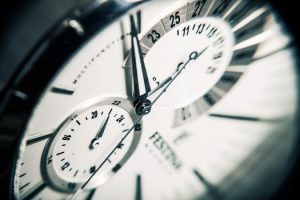
The longest weekend of the year has arrived; people across much of the United States will gain an hour (and likely an hour of sleep) with the end of daylight saving time.
The switch occurs tonight, November 3, at 2a local time. Most modern clocks and electronics will automatically “fall back” the hour to 1a local standard time. Some devices, such as microwave ovens, wall clocks, or older electronics like VCRs, will need a manual update.
The government decided that changing clocks at 2a would be the least disruptive time to adjust clocks, assuming most of the population is asleep. Once Daylight Saving Time ends, most Americans will stay on Standard Time until March 10, 2019.
Why do we change clocks? The idea was first floated in America by Benjamin Franklin; he thought people could conserve energy and enjoy an extra hour of daylight if people moved their clocks forward in the spring. The time change wasn’t implemented though until May of 1916 as a way of conserving fuel during World War I. However, the idea that energy is saved is questionable. A number of studies, including a recent 2007 Department of Energy study, showed energy isn’t really conserved. The time change also has adverse health effects: a 2014 study published in the Open Heart Journal found that heart attacks increase by more than 20% on the Monday after Daylight Saving Time begins compared to other weeks. And a study released last week by the JPMorgan Chase Institute showed that changing clocks in the spring and fall had a net negative impact on the US economy.
Not every part of the United States follows the Daylight Saving Time clock-flipping process. States and territories in the United States that do not observe daylight saving time, aside from most of Arizona, include: Hawaii, American Samoa, Guam, Puerto Rico, and the US Virgin Islands.